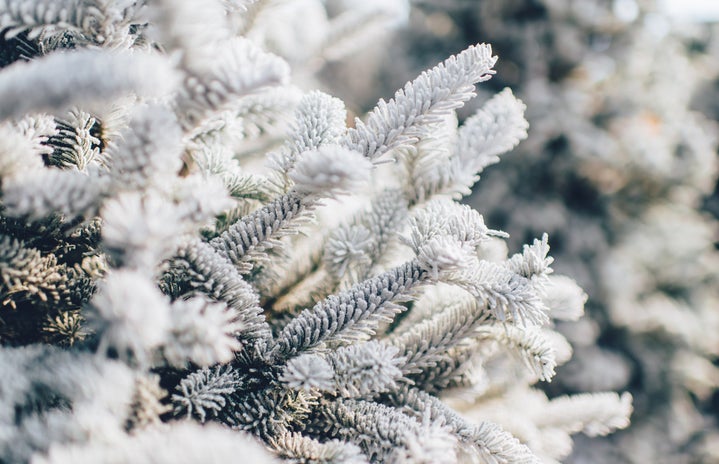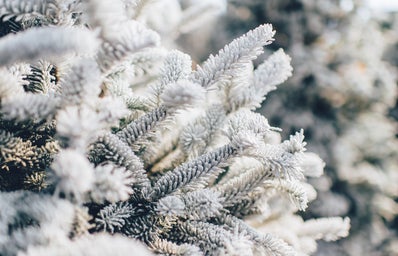It’s becoming that time of year: where stores fill up with little knick-knacks to fill stockings, wrapping paper flies off the shelves, and consumerism is at an all-time high. While I love gift-giving (and receiving) as much as the next person, it’s often overlooked what environmental impacts can be left behind as we head into the new year. Unfortunately, the average American’s carbon footprint increases by around 1,400 pounds each holiday season, and after the focus on carbon emissions at this year’s global climate summit, it seems like the perfect time to start rethinking your holiday habits and building new practices that will help contribute to a better world for us and future generations. Here are some ways to begin your eco-friendly holiday journey:
Fake Vs. Real Trees
In recent years, there has been much debate on which type of tree is more eco-friendly: real trees or the plastic ones you can keep for years. According to nature.org and other environmentalist sources, real Christmas trees are better for the environment than fake trees– while you can keep fake trees for years, the number of carbon emissions and resources it takes to make them offset that positive. Additionally, it’s unlikely that every family with a fake tree will keep theirs for a long time, and the tree will likely end up in a landfill come spring. Natural Christmas trees can help farmers stay in business, create Christmas tree forests (as not every tree is cut down for the holiday season), and be recycled. Plus, you can never beat the smell of a real Christmas tree!
There are a couple of ways to make your Christmas tree even more environmentally friendly, like keeping the tree potted for replanting or looking into options for recycling the tree near you. Additionally, try to keep your Christmas lights off as often as possible, or look into buying some energy-saving Christmas tree lights.
Wrapping Paper–Is It Recyclable?
Luckily for you, there are plenty of recyclable wrapping paper options online already, so this one shouldn’t be that much of a change! While it may seem like wrapping paper is environmentally harmless already, a lot of it has non-recyclable ingredients like foil, glitter, or plastic in it. If you want to test your wrapping paper, you can try the scrunch test, where you scrunch the paper into a ball–if it unfolds on its own, it likely has some of those non-recyclable elements. That being said, if you have wrapping paper from previous years, reuse it!
There are some more creative ways to wrap gifts besides wrapping paper as well. Many are opting into fabric wrapping, which eliminates the worry around generic wrapping paper altogether and can be used for years to come. Personally, I’ve started to make the wrapping of my gifts a gift itself– tote bags are super trendy, can replace single-use plastic bags, and can hold other presents as well, making them and reusable grocery bags great wrapping for a family member looking to reduce their carbon footprint.
Quality, not Quantity
It’s super easy to fall into the commercial traps of cheap but cute holiday gifts that will likely fall apart or be forgotten in two weeks (I’m looking at you, holiday-scented chapsticks in the Target check-out line that are packaged with three layers of plastic). Not only will finding a meaningful gift be much more rewarding as a friend, family, or partner, you’ll reduce your waste overall. It’s even better if you get your presents from some local small businesses (here are some Boulder ones!).
If you have a friend with climate anxiety or who’s an environmentalist (or both), consider getting them a charity-based gift like those by crime works, a website that lets you buy removal of CO2 from the planet for prices as cheap as 30 dollars with their climate-positive direct air capture plant in Iceland. If they are animal lovers, you can symbolically adopt an animal for them with a donation to the World Wildlife Fund.
Another option for the environmentally cautious friend who still wants a physical gift is a smart meter for their home, which helps homeowners be more efficient in their energy usage– however, this gift would require a lot of hands-on electric work in installation, so it’s probably best if you do this gift for yourself, a partner, or as a family unit.
A More Green Holiday Dinner
While there are various holidays around this time of year with various traditions, an underlying facet of the season is food– and lot’s of it. Whether it’s turkey, catfish, or latkes, there’s sure to be a way to reduce your food waste, as long as you become more aware of how much food you’re purchasing and where you’re buying it from.
A Sustainable Hanukkah
While I don’t personally celebrate Hanukkah, I did reach out to some family friends who do for ways to make the holiday more eco-friendly. According to them, while Hanukkah is already a pretty sustainable holiday, purchasing a dreidel that is wooden or ceramic instead of plastic is one way to transition to a totally environmentally friendly Hanukkah. Recyclable and reusable wrapping paper, as discussed above, can also be applied to Hanukkah gifts. Additionally, purchasing a menorah that uses oil instead of candles can be used with used cooking oil.
Happy Holidays!


